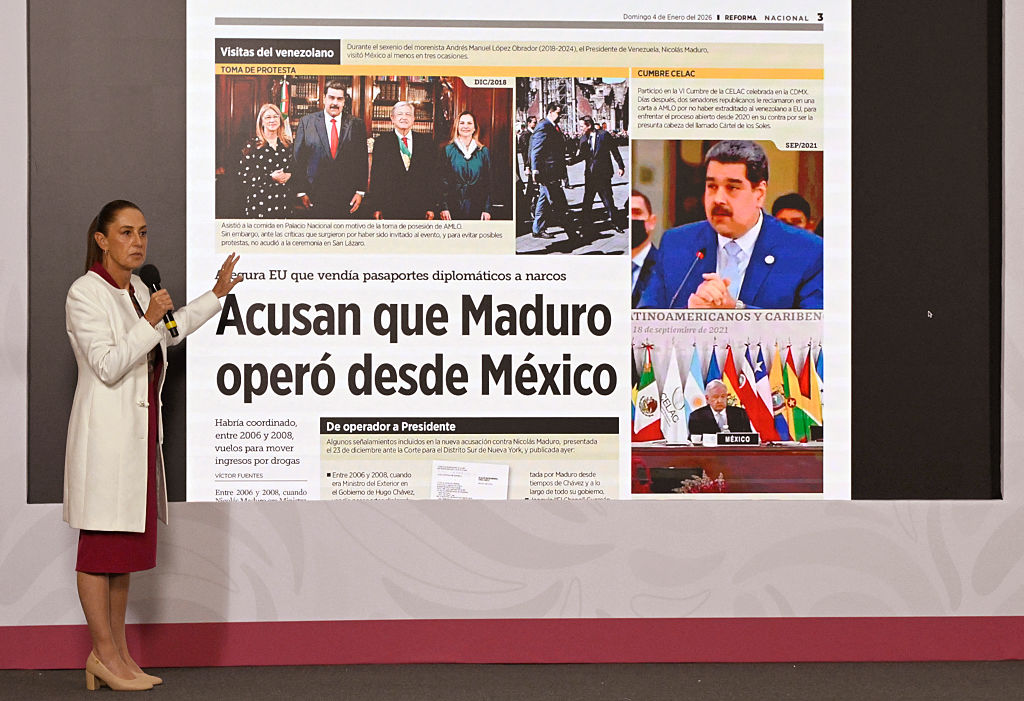A Tit for Tat over Trucks
A Tit for Tat over Trucks
Mexico struck back by raising tariffs on almost 90 U.S. goods after Washington cancelled a cross-border trucking program. The trucking project was a step towards meeting obligations carved out under NAFTA. Can upcoming visits by U.S. President Barack Obama and Secretary of State Hillary Clinton heal the rift?
A move by U.S. Congress to stop a cross-border trucking program drew a counterpunch from Mexico this week. The recently signed U.S. spending bill ended funding for a pilot program allowing Mexican trucks to transport cargo inside the United States and vice versa. With the program a long overdue part of the North American Free Trade Agreement (NAFTA), Mexico chose to retaliate. The administration of Mexican President Felipe Calderón unveiled new tariffs for close to 90 industrial and agricultural products imported from the United States. Yet Washington announced a pair of high-profile visits to Mexico by U.S. Secretary of State Hillary Clinton and U.S. President Barack Obama, opening the door to smooth the turbulence over trade and security issues.
As the tariffs were announced, Mexico’s Economy Secretary Gerardo Ruiz Mateos said the cancellation of the program is “wrong, protectionist, and clearly violates the [NAFTA] treaty.” A Department of Transportation report found that Mexican truckers registered under the program met all 22 safety mandates demanded by U.S. Congress.
The duties, which went into effect on March 19, represent tariff increases of as much as 45 percent on $2.4 billion worth of exports, explains Sidney Weintraub of the Center for Strategic and International Studies in a Forbes.com editorial that breaks down the history of the trucking plan. The Mexican government carefully chose the products on the tariff list “to avoid pushing up prices of staples in Mexico while hitting goods that are important exports for a range of American states. That way, it could have maximum political effect north of the border,” The Economist explains. Wall Street Journal warns that Mexico can turn to other trading partners—Europe, Canada, and Latin America—to replace the U.S. brands. Total trade between Mexico and the United States stood at over $367 billion in 2008.
Trade and trucks are not the only matters troubling U.S.-Mexican relations at the moment. At AS/COA’s recent annual Mexico City conference, Calderón condemned remarks originating in the United States that question Mexico’s institutional strength in the face of violent organized crime. He raised concerns about U.S. drug consumption and arms smuggling and urged joint U.S.-Mexican action to fight drug cartels.
Given the tensions, the timing of the upcoming visits by Obama and Clinton could prove crucial to giving ties between the neighbors a boost. Appearing on National Public Radio’s “Diane Rehm Show,” COA’s Eric Farnsworth expects that this bump in trade relations won’t escalate “at a time when, I think, neither nation could afford it.”
Mexico’s El Universal takes a closer look at the trade rift and plans for Obama’s trip to Mexico in advance of April’s Summit of the Americas. Clinton’s visit next week will pave the way for Obama’s. Moreover, the appointment of former Dallas Mayor Ron Kirk as the new U.S. Trade Representative gained congressional approval this week, just in time to tackle the problem. “It will be one gnarly challenge after the next for the new U.S. trade representative, starting with the trade war that erupted this week with Mexico,” says Dallas Morning News.
Some contend that killing plans for a trucking program will result in higher shipping costs. Bloomberg reports that what a truck could haul from one point in Mexico to another in the United States will take three different trucks and one extra day without the program. The Bureau of Transportation Statistics shows that the value of goods transported by truck between both countries rose to $234 billion last year. Mexico's decision came as the World Bank raised alarm about protectionist measures undertaken by G20 members in the midst of the global financial crisis.
AS/COA hosts a program on March 24 in advance of the Obama and Clinton visits. Learn about the event, which will involve a panel videoconferenced in New York and Washington.








